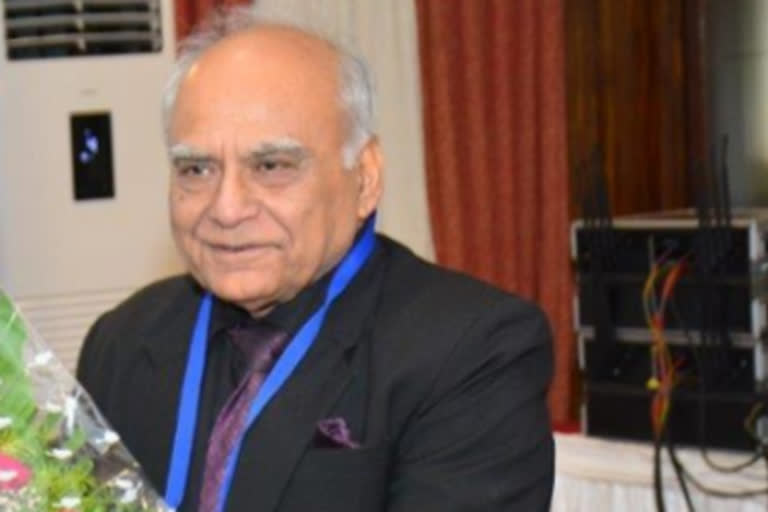Hyderabad:In the last few weeks, India has witnessed a sharp rise in the number of confirmed cases of the novel coronavirus. The number of positive cases in India has crossed the 9000 mark. Though the Union Health Ministry has asserted that community transmission has not yet started in India, the recent findings of The Indian Council of Medical Research (ICMR) show a different picture.
Forty people out of a total of 104 coronavirus patients with severe acute respiratory infection (SARI) were found to have contracted the infection without having any recent international travel history or contact with any confirmed cases of the disease.
The ICMR came out with the findings after carrying out random coronavirus tests on 5,911 people suffering from Severe Acute Respiratory Illness in 52 districts in 20 states and Union Territories between February 15 to April 2.
In an exclusive interview to ETV Bharat, Dr. Ganguly shared his thoughts about the global COVID-19 pandemic, its implications in India and the possible future course of treatment to combat the viral attack.
Professor Dr. Nirmal Kumar Ganguly is a Padma Bhushan microbiologist specialising in tropical and cardiovascular diseases. He was a distinguished Biotechnology Research Professor, Department of Biotechnology, Government of India. Dr Ganguly is the former Director-General of the Indian Council of Medical Research (ICMR) and former president of the Jawaharlal Institute of Postgraduate Medical Education and Research (JIPMER).
Here are the excerpts:
Q 1) In the last few weeks, India has witnessed a sharp rise in the number of confirmed cases of the novel coronavirus. A group of ICMR researchers examining the spread of COVID-19 in patients suffering from Severe Acute Respiratory Illness (SARI) has found as many as 104 out of 5,911 patients are suffering from COVID-19. Forty of these 104 COVID-19 patients neither had a travel history to any foreign land nor came in contact with a person who has contracted the infection. Do you think this is an early indication of community transmission in India?
Ans:We need to assess the cases very minutely and focus on their contacts. Contact tracing through multiple modes are extremely important in tackling Coronavirus. See, there are two clear methods of spreading a viral disease, asymptomatic contacts and through those who are in the window period. We have to understand that both qualify for community spread. We need to have a clearer picture before coming to any stage confirmation and for that, we need to have a holistic epidemiologic picture.
Q 2) The demographics of the ICMR study show that older people are more likely to contract the virus as 23% of the SARI patients between the age of 50-69 years (57 cases) have tested positive to COVID-19. Why do you think they are so vulnerable?
Ans: India is different from other countries. We have more diabetics, hypertensive and obese people in younger groups. Then we have middle obesity and more fat cells than our Caucasian and Hispanic counterparts. We also have lifecycle problems with low birth weight and pre-term babies who, as they grow, have a propensity for obesity and diabetes.
Hence, our age band is different from others. People with old age and with comorbidities might be confined at home and going out less. We need to keep on assessing more as we progress ahead in tackling the spread.
Q 3) Are social distancing and personal hygiene the only best ways to reduce the spread of this deadly virus?
Ans: These efforts, according to limited experience, can surely bring down the infections by 1/3rd to 1/2. But, tracking of contacts and positive cases will always remain critical factors. The mantra here is test, test, and test. Only this procedure can help us wholesomely, nothing else.
